If you care for a loved one with Alzheimer’s disease or another type of dementia, you may notice they experience bouts of agitation or aggression as they progress through the middle to later stages of the disease.
When this type of behavior occurs, it’s important to understand what is triggering the behaviors, as well as strategies for defusing them. Read on to learn more about dementia-related aggression and how you can respond.
What is Aggressive Behavior in People With Dementia?
As you try to identify behavior in your loved one, think of the behavior on different ends of the spectrum.
Agitation manifests itself as a person seeming restless, uneasy, upset, or overwhelmed. Aggression is a more intense behavior that may include verbal or physical acts.
Both of these types of behaviors often appear for a reason.
What is Dementia-Related Agitation?
As noted above, agitation and aggression are two different things. Agitation typically involves more understated feelings and actions compared to aggression.
Agitation may manifest itself as anxious behavior, becoming restless, pacing, and being upset in certain situations. It may turn into aggression if not mitigated.
Many of the strategies and causes below also apply to people experiencing dementia-related agitation.
What Causes Aggression in People With Dementia?
According to the National Institute on Aging, aggression in people with dementia typically has an underlying cause. The person may be unable to express their feelings or frustrations, or they have difficulty pinpointing what is bothering them. What appears as aggressive behavior is often their attempt to communicate a problem.
Possible causes of aggression or agitation in people with dementia might include:
- Physical illness, infection, or pain
- Too much external stimulation (bright lights, loud noises, too many people, etc.)
- Hunger, thirst, or tiredness
- Side effects from medications
- Stress or anxiety from surrounding people (people with dementia can often pick up on these feelings)
If your loved one with dementia exhibits agitation or aggressive behavior, use these triggers to help identify the possible cause. If the behavior occurs frequently, schedule a visit with a doctor to rule out any underlying causes or pain.
Related: How to make your home safe for someone with dementia >>
A Note on Dementia-Related Delusions
People with dementia sometimes experience delusions, which are strong beliefs in something that’s not real. (This is different from a hallucination, which is a false sensory perception.) An example of a delusion is the belief that a loved one has stolen something from the person with dementia, or that they are being watched.
Delusions are not real and may seem illogical, but they are real to the person. Keep in mind that a person with dementia may act agitated or aggressive because of these thoughts and feelings as you respond.
How Can I Respond to Aggressive Behavior?
It’s natural to feel hurt, upset, or angry when someone you care about is exhibiting aggressive behavior toward you. However, try to remember that it’s not personal, and your loved one is not acting that way intentionally.
The way you react to the behavior can have a big impact on the way the person will respond. By staying as calm as possible, you’ll show the person that you aren’t getting upset and are going to help them handle whatever the problem is.
Below are tips to de-escalate aggressive behavior.
- Ensure safety first. If the other person cannot stop the aggressive behavior, get help from someone else, if possible. Call 911 in emergency situations and be sure to explain that the person has dementia, which is causing them to act this way.
- Give them space. If you can, and the person is safe, walk away for a minute to calm yourself and give them a few moments to themselves.
- Do something else. The person’s current activity may be frustrating for them or bothering them in some way. Try redirecting their focus to another task or activity.
- Reduce distractions. The person’s environment may be causing the aggression. People with dementia can become overstimulated easily, so try to assess the situation. Are there bright lights, loud noises, or strong scents? Try to remove or reduce these.
- Focus on feelings. Stay calm and clearly ask the person a simple question, like “Are you OK?” Even if what they say doesn’t make logical sense, do your best to go along with it and respond appropriately. The Alzheimers Association suggests not asking long or complicated questions.
Related: Tips for Caring for a Loved One With Alzheimer’s >>
Resources and Support for Dementia Caregivers in New York
Caregiving for someone with dementia can be challenging, but there are numerous resources and groups you can connect with for support.
Below is just a short list of suggestions; there may be more in your area or region.- Community help and support resources from the Alzheimer’s Association
- The Family Caregiver Alliance
- CaringKind NYC support groups
- Information from the State of New York on groups by county
Finding support and connecting with other people who understand your situation can be vital in maintaining your own health and wellness.
Caregiver’s Guide: Evaluating Memory Care Communities in Manhattan
If you’re considering memory care for a loved one, it can be a challenge to know where to start. Our memory care guide helps simplify the process for caregivers by giving tips on what to look for and what questions to ask when evaluating a community. It also provides examples of a quality memory care program so you can compare communities for yourself.







